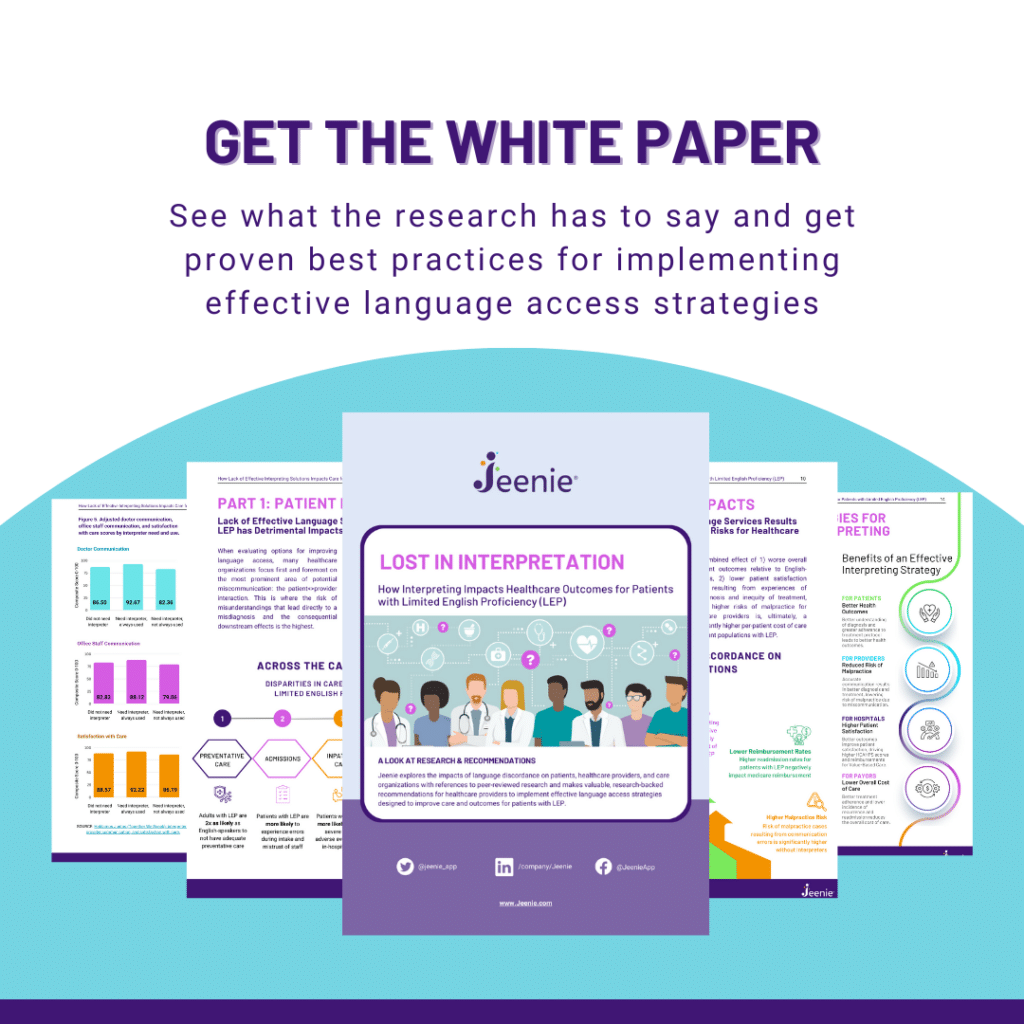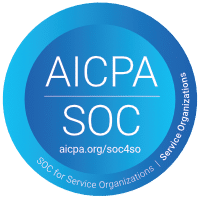Improve Care for Patients with Limited English Proficiency
Healthcare organizations have a challenging task: provide the best possible care for patients while streamlining operations and controlling costs. With so many moving parts in a constantly evolving industry, it can be easy to overlook the needs of marginalized patient populations, such as the Deaf/Hard of Hearing and patients with Limited English Proficiency (LEP). And that’s a serious problem. Language barriers in healthcare are a leading cause of health inequity with serious consequences for patients, providers, and care organizations.
Care organizations need clear solutions. That’s where our white paper comes in!
In our latest white paper, Lost in Interpretation: How Interpreting Impacts Healthcare Outcomes for Patients with LEP, we explore the impacts of language discordance on patients, healthcare providers, and care organizations. We reference to peer-reviewed research and make valuable, research-backed recommendations for healthcare providers to implement effective language access strategies that improve care and outcomes for patients with LEP.
With our white paper, you’ll get an in-depth understanding of the problems caused by language barriers in healthcare and their potential impacts across the healthcare organization. More importantly, we explore solutions to the problem. We look at actionable insights and practical advice that healthcare organizations can implement today to start improving care and mitigating risk for patients with LEP.
Whether your goal is improving patient outcomes, increasing operational efficiency, or mitigating risk, the white paper provides you with a comprehensive overview of the most efficient solutions available, including cutting-edge video remote interpreting technologies and proven best practices for engaging with patients with Limited English Proficiency.













